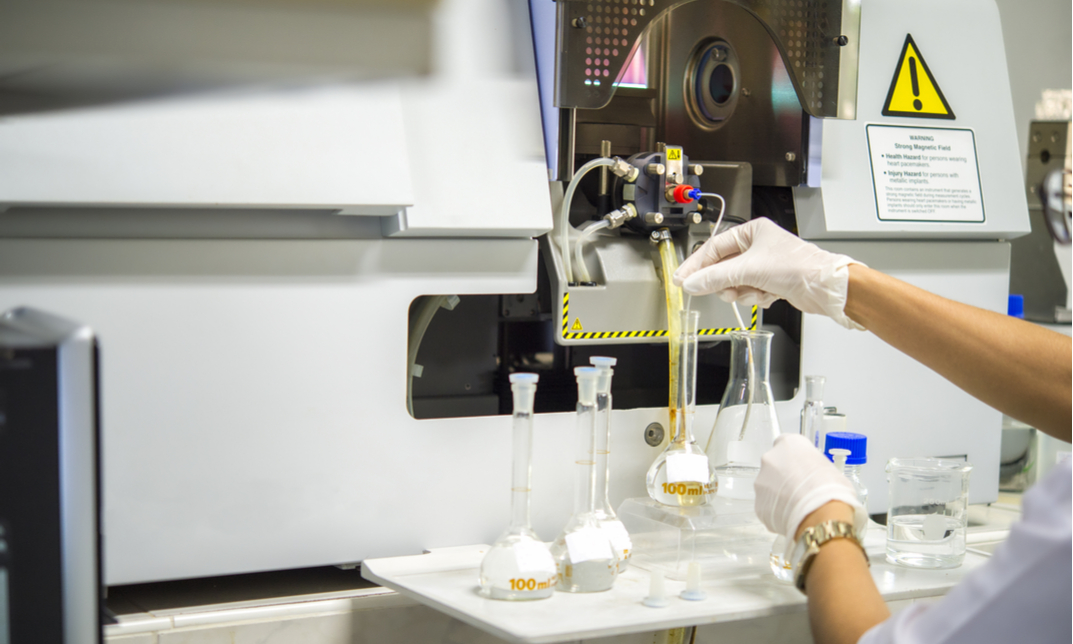You must be logged in to take this course → LOGIN | REGISTER NOW
What is Spectroscopy? It is the study of the way light interacts with different matters. Organic
Spectroscopy is interactions of light with organic matter. There are different spectroscopic
techniques for structure determination organic molecules. [Course_title] will let you to those
techniques.
You will learn about spectroscopic techniques such as mass spectrometry (MS), ultraviolet (UV),
Chiroptical, Infrared (IR), nuclear magnetic resonance (NMR). You will also get the knowledge
of Nuclear magnetic resonance spectroscopy or magnetic resonance spectroscopy (MRS).
Assessment
This course does not involve any written exams. Students need to answer 5 assignment questions to complete the course, the answers will be in the form of written work in pdf or word. Students can write the answers in their own time. Each answer needs to be 200 words (1 Page). Once the answers are submitted, the tutor will check and assess the work.
Certification
Edukite courses are free to study. To successfully complete a course you must submit all the assignment of the course as part of the assessment. Upon successful completion of a course, you can choose to make your achievement formal by obtaining your Certificate at a cost of £49.
Having an Official Edukite Certification is a great way to celebrate and share your success. You can:
- Add the certificate to your CV or resume and brighten up your career
- Show it to prove your success
Course Credit: UCI Open
Course Curriculum
| Module: 01 | |||
| Chem 203. Organic Spectroscopy. Lecture 01. Infrared Spectroscopy: Introduction | 00:56:00 | ||
| Chem 203. Organic Spectroscopy. Lecture 02. C,H,O-Containing Functional Groups | 00:52:00 | ||
| Chem 203. Organic Spectroscopy. Lecture 03: Ring Size Conjugation, Electron-Withdrawing Groups | 00:52:00 | ||
| Chem 203. Organic Spectroscopy. Lecture 04. Mass Spectrometry. | 00:55:00 | ||
| Chem 203. Organic Spectroscopy. Lecture 05. Isotopic Masses, Abundances, and Mass Spectrometry | 00:52:00 | ||
| Chem 203. Organic Spectroscopy. Lecture 06. Alkanes, Alkenes, Heteroatom and Carbonyl Compounds | 00:40:00 | ||
| Chem 203. Organic Spectroscopy. Lecture 07. Introduction to NMR Spectroscopy, Part 1 | 00:52:00 | ||
| Chem 203. Organic Spectroscopy. Lecture 08. Introduction to NMR Spectroscopy, Part 2 | 00:54:00 | ||
| Chem 203. Organic Spectroscopy. Lecture 09. Chemical Shift. 1H NMR Chemical Shifts | 00:56:00 | ||
| Chem 203. Organic Spectroscopy. Lecture 10. 13C NMR Chemical Shifts. | 00:57:00 | ||
| Module: 02 | |||
| Chem 203. Organic Spectroscopy. Lecture 11. Magnetic Equivalence, Spin Systems, and Pople Notation | 00:53:00 | ||
| Chem 203. Organic Spectroscopy. Lecture 12. Coupling Analysis in Systems | 00:52:00 | ||
| Chem 203. Organic Spectroscopy. Lecture 13. Coupling Analysis in Systems (continued) | 00:52:00 | ||
| Chem 203. Organic Spectroscopy. Lecture 14. Spin-Spin Coupling | 00:55:00 | ||
| Chem 203. Organic Spectroscopy. Lecture 15. Coupling Involving Other Nuclei | 00:55:00 | ||
| Chem 203. Organic Spectroscopy. Lecture 16. 13C Chemical Shifts in Structure & Stereochemistry | 00:59:00 | ||
| Chem 203. Organic Spectroscopy. Lecture 17. Introduction to 2D NMR Spectroscopy | 00:56:00 | ||
| Chem 203. Organic Spectroscopy. Lecture 18. Dynamic Effects in NMR Spectroscopy | 00:55:00 | ||
| Chem 203. Organic Spectroscopy. Lecture 19. The Nuclear Overhauser Effect | 00:54:00 | ||
| Module: 03 | |||
| Chem 203. Organic Spectroscopy. Lecture 20. Understanding Complex Pulse Sequences | 00:56:00 | ||
| Chem 203. Organic Spectroscopy. Lecture 21. Using HMBC to Help Solve Structures | 00:54:00 | ||
| Chem 203. Organic Spectroscopy. Lecture 22. Aspects of COSY, HMQC, HMBC, and Related Experiments | 00:53:00 | ||
| Chem 203. Organic Spectroscopy. Lecture 23. Using TOCSY to Elucidate Spin Systems. ROESY | 00:54:00 | ||
| Chem 203. Organic Spectroscopy. Lecture 24. Using Organic Spectroscopy to Solve Complex Structures | 00:53:00 | ||
| Chem 203. Organic Spectroscopy. Lecture 25. INADEQUATE. Some Thoughts on Homework Set 9 | 00:57:00 | ||
| Chem 203. Organic Spectroscopy. Lecture 26. Using Organic Spectroscopy to Solve Complex Structures | 00:57:00 | ||
| Chem 203. Organic Spectroscopy. Lecture 27. Using HMQC-TOCSY or HSQC-TOCSY to Deal with Overlap | 00:57:00 | ||
| Chem 203. Organic Spectroscopy. Lecture 28. Some Other Useful NMR Techniques | 00:59:00 | ||
| Assessment | |||
| Submit Your Assignment | 00:00:00 | ||
| Certification | 00:00:00 | ||
Course Reviews
No Reviews found for this course.






